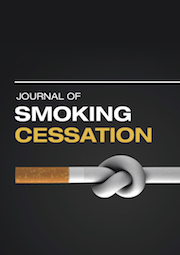Article contents
Understanding smokers’ beliefs and feelings about smoking and quitting during a quit attempt: a preliminary evaluation of the SNAP model
Published online by Cambridge University Press: 15 February 2013
Abstract
This study sought to obtain a preliminary assessment of whether a new model of behaviour change (SNAP) could provide a useful conceptual framework for classifying smokers’ reports of their beliefs and feelings about the process of stopping smoking. Eight smokers’ clinic attendees in Malaysia underwent semi-structured interviews before and four weeks after the start of their quit attempt. A variant of Template Analysis found support for the view that smokers’ inferred identities could be reliably classified in the terms Smoker, Non-smoker, Attempter or Planner (SNAP) using self-statements about their motivation and behaviour as well as identity. There was evidence for wide variation in the coherence of smokers’ beliefs and feelings defined in terms of the proportion that fitted their modal SNAP category. As would be expected there was a shift in SNAP categories pre- to post-quit in those who were not smoking but only so far as ‘attempter’. An important next step is to assess how far lack of coherence in a given identity predicts transitions to other categories.
- Type
- Articles
- Information
- Copyright
- Copyright © The Authors 2013
References
- 4
- Cited by


